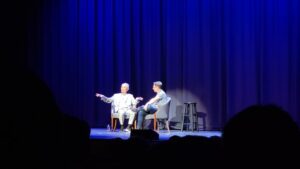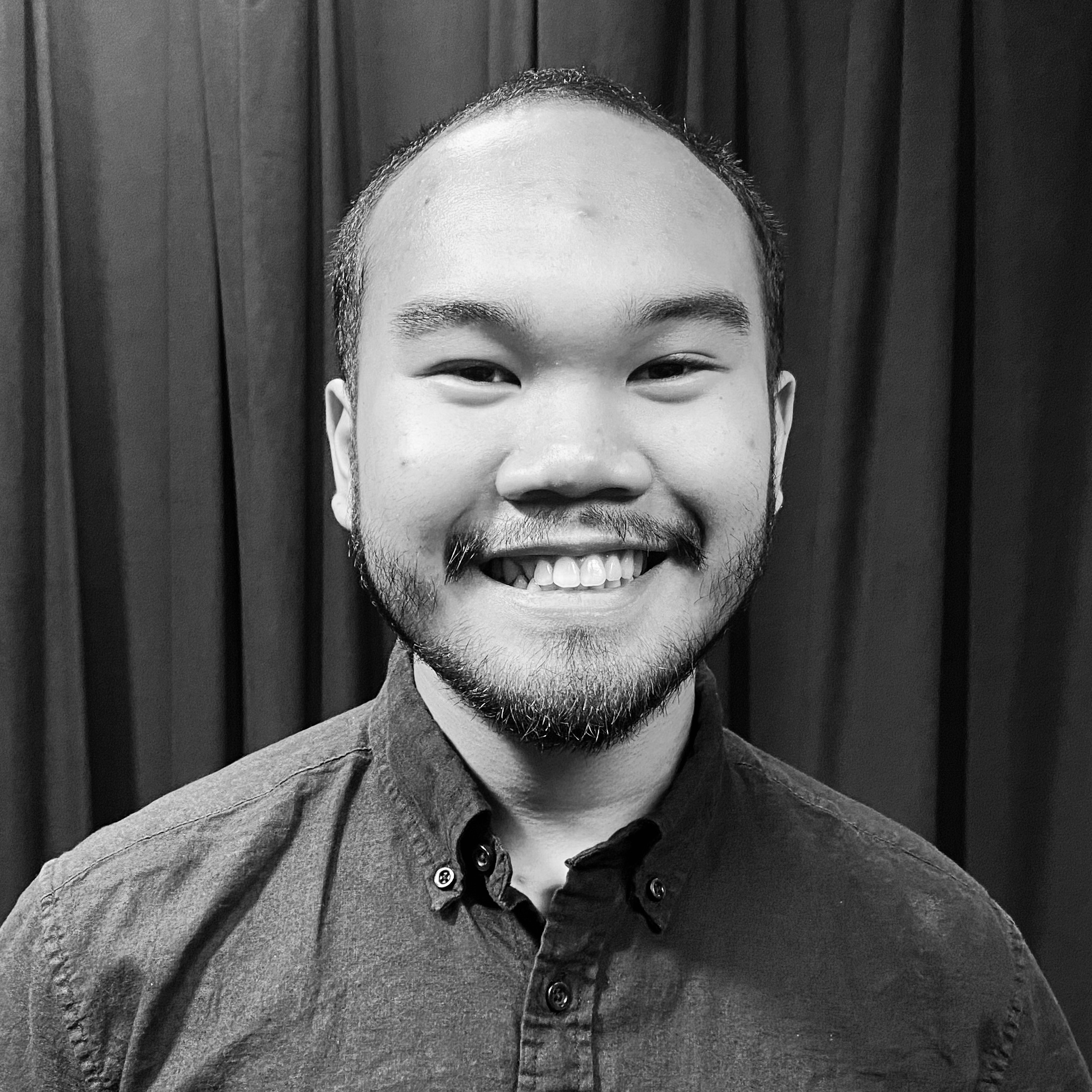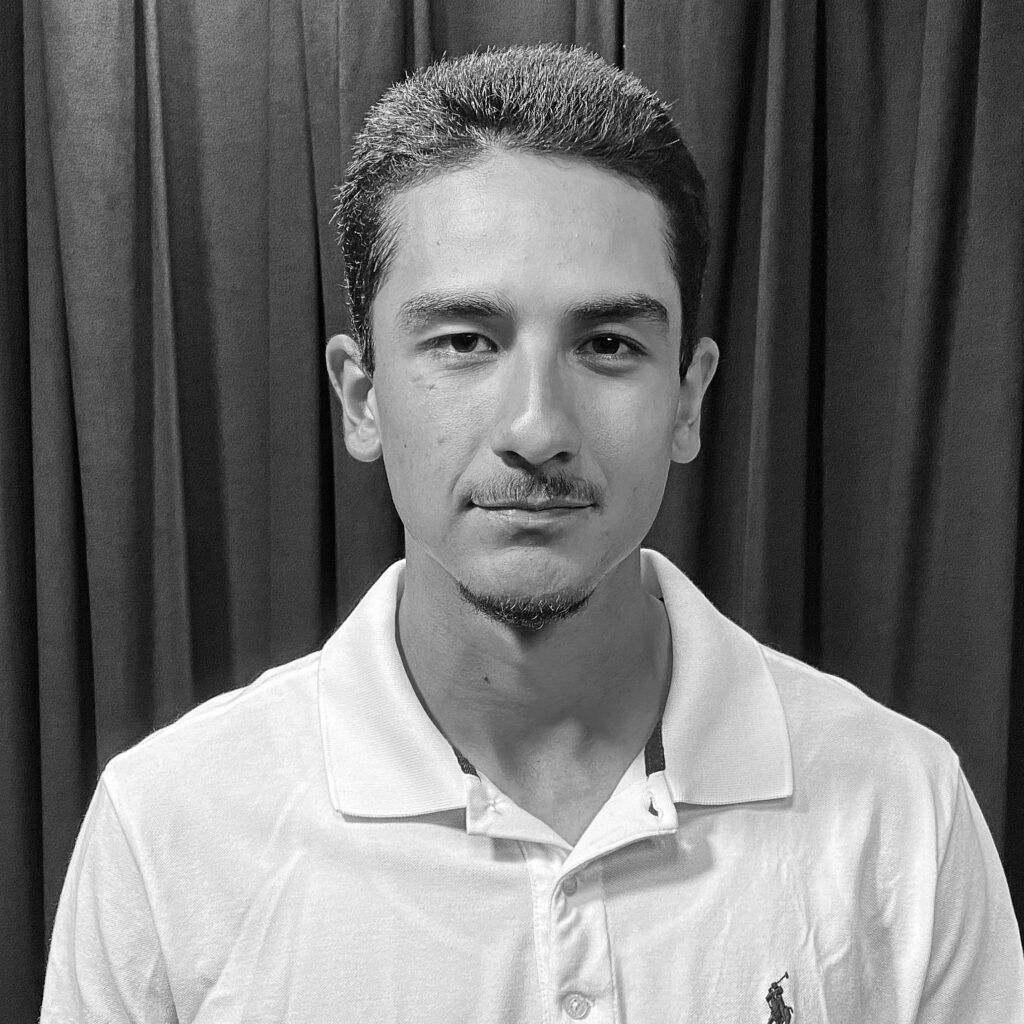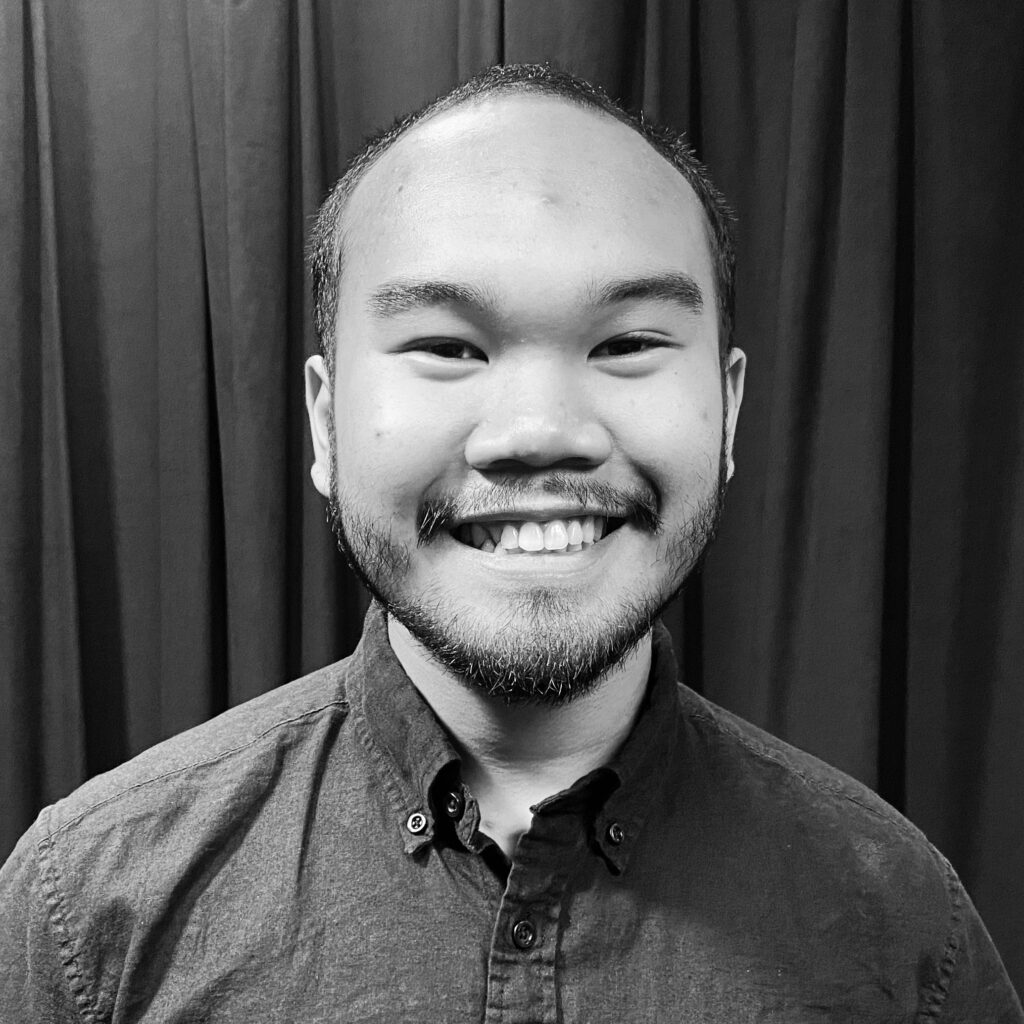George Takei visits the Stiefel Theatre
Written by Elijah Resano on October 3, 2023
By Elijah Resano / Staff Writer
Last Friday evening, renowned actor and political activist George Takei visited Salina in the Stiefel Theatre. He came to talk about his experiences as a Japanese American in World War II and recounted his life in American concentration camps during the war.
Takei was welcomed by an enthusiastic crowd, who cheered and roared as he greeted them with a Vulcan salute, a hand gesture popularized by “Star Trek” in which Takei played a major role as Hikaru Kato Sulu.
He then mentioned how this was his first time in Kansas and mistook Manhattan, KS, for Manhattan in New York City during his visit to Kansas State University. Takei was enamored with Salina’s vibrant downtown and its aesthetics, particularly with the murals and various art installations.
Takei then shifted gears to recall the day the Japanese bombed Pearl Harbor on December 7, 1941. He vividly remembered the days that followed. A curfew was placed on all Japanese Americans. Japanese American-run businesses were graffitied, bank accounts were frozen, and Takei’s own father’s car had a racial slur written across it.
The day when President Franklin D. Roosevelt signed Executive Order no. 9066 was etched into Takei’s mind. It ordered all Japanese Americans to be rounded up and imprisoned without due process. He talked about the morning after that day when they were relocated by armed soldiers to live temporarily in horse stables, still pungent of horse manure.
“My father gave my brother and me a small luggage to carry and we walked out and waited for my mother to come out.” Takei said. “When she came out, she had our baby sister in one arm, a huge duffle bag in another, and tears were streaming down her face. I will never forget that day, it is burned into my memory.”
Takei was sent to Rohwer, Arkansas, one of the ten American concentration camps built for Japanese American internment and spoke what it was like growing up there.
“We went to school there,” Takei said. “Our teacher said, ‘I am going to teach you the pledge of allegiance,’ and pointed to the flag at the head of the room. So every day we recited the pledge of allegiance before classes started. As I uttered the words: ‘with liberty and justice for all’ I could see the barbed wire fence and sentry towers that surrounded us through the window. How ironic it was.”
Following a shortage on manpower the next year, Takei recalled a loyalty questionnaire that would decide the eligibility of Japanese Americans to serve in the army. The questionnaire contained engineered yes or no questions that specifically made it impossible for civilians to opt out of internment. His family was classified as disloyal.
Those who passed the test were granted access to serve. Takei then introduced the 442nd Regimental Team, which primarily consisted of Japanese Americans. They were sent on suicide missions during World War II where the odds were stacked against them. He explained that with nothing left to lose and everything taken away from them, they fought bravely and valiantly. The 442nd remains as the single most distinguished unit in United States military history.
Takei’s family was relocated to Tule Lake War Relocation Center in California because of their new status. There he talked about young Japanese American men and women that formed rebel-like groups after being years in imprisonment, once eager to serve their country. He described it as the most rambunctious out of all the internment camps.
When the war finally ended, as Takei described, they were given a one-way ticket anywhere in the country and $25 to start a new life. They moved to Skid Row in Los Angeles. His sister, a toddler then, remarked how she wanted to go home. It saddened him hearing that as all her life up until then had been behind a barbed wire fence.
Takei then explained that his father was able to score a job as a dishwasher in a Chinese restaurant as only other Asians were willing to hire them. His father eventually purchased a laundromat and had saved up enough money by the 50’s to purchase them a home.
“When I was a teenager, I became very interested in our imprisonment,” Takei said. “I learned about the ideals of American democracy. I talked with my father after dinner in long conversations. He suffered the most in those years of imprisonment and yet he understood American democracy. He told me our democracy is of the people, for the people, by the people quoting Abraham Lincoln. But even people are flawed.”
Takei then explained throughout his early young adult life, he participated in election campaigns and civil rights movements. He marched alongside Dr. Martin Luther King. Using his profound new platform after his breakout role in “Star Trek”, he became active in several groups to talk about Japanese American internment. Most notably being a witness in a congressional commission to acknowledge the internment in 1981.
He was overjoyed when President Ronald Reagan signed the Civil Liberties Act of 1988, where he apologized on behalf of the American government for the internment of Japanese Americans. The act also authorized a $20,000 redress for living internees, many of which were already old and frail according to Takei.
He was so moved by the gesture that it reaffirmed his belief in continuing the ideals of American democracy and to showcase its strengths and highlight its weaknesses. He hopes that by sharing his story that people may learn from what he has suffered.

Photo by Elijah Resano / George Takei answers an audience member’s question.
The night ended with Takei answering submitted questions. He explained his fascination for comics as the reason why he wrote his memoir about the concentration camps as a graphic novel. He was also touched by the fact that some Kansas Universities have chosen one of his books as a required reading for freshmen.
As he left, he was once again applauded with a standing ovation with audience members waving the Vulcan salute.




